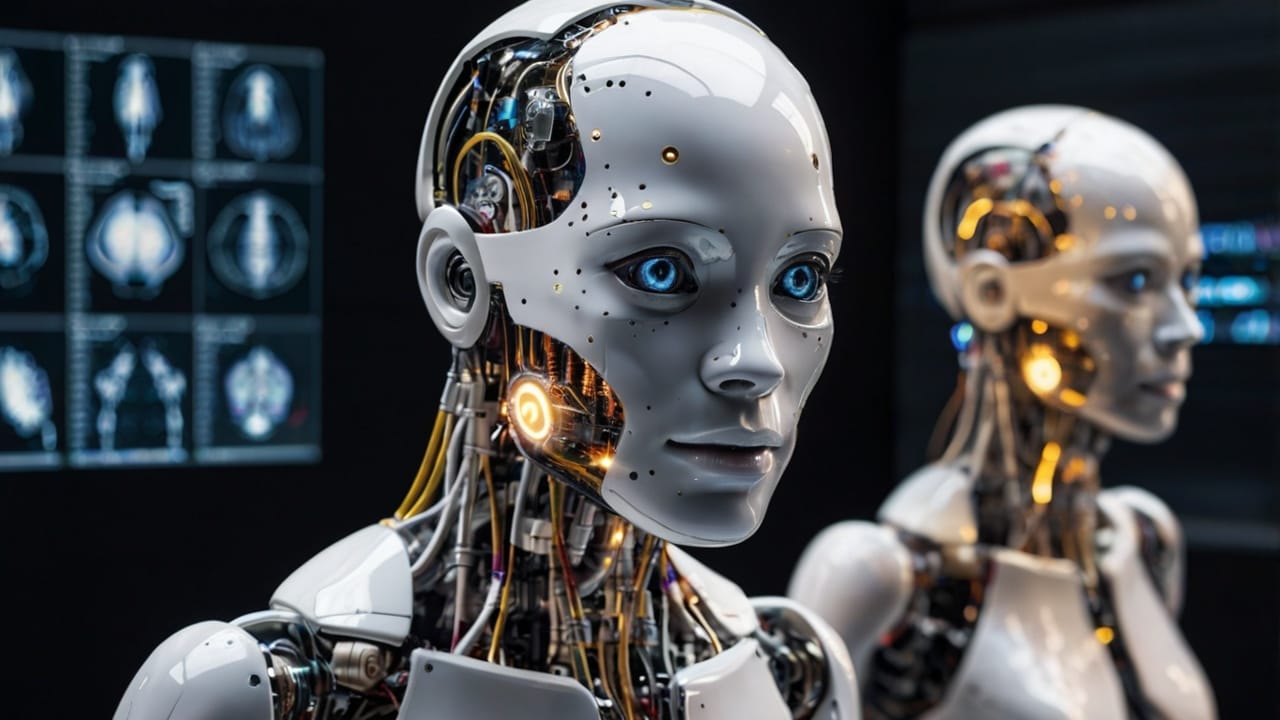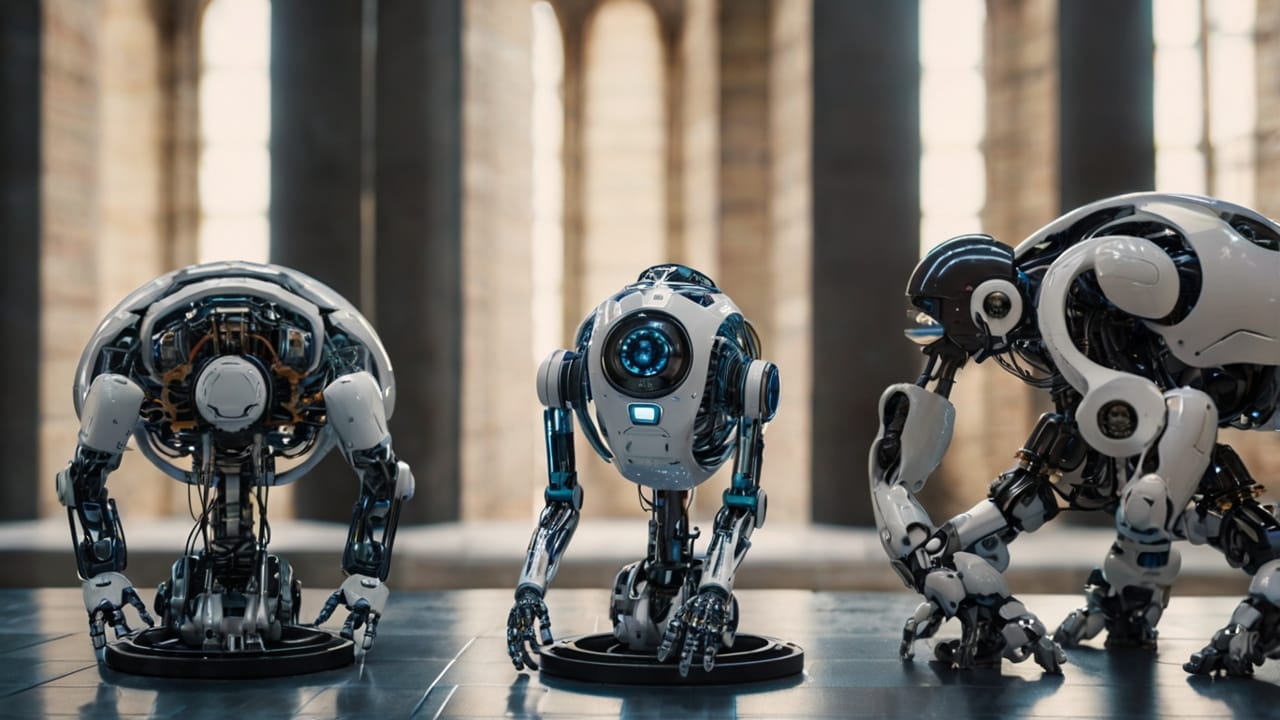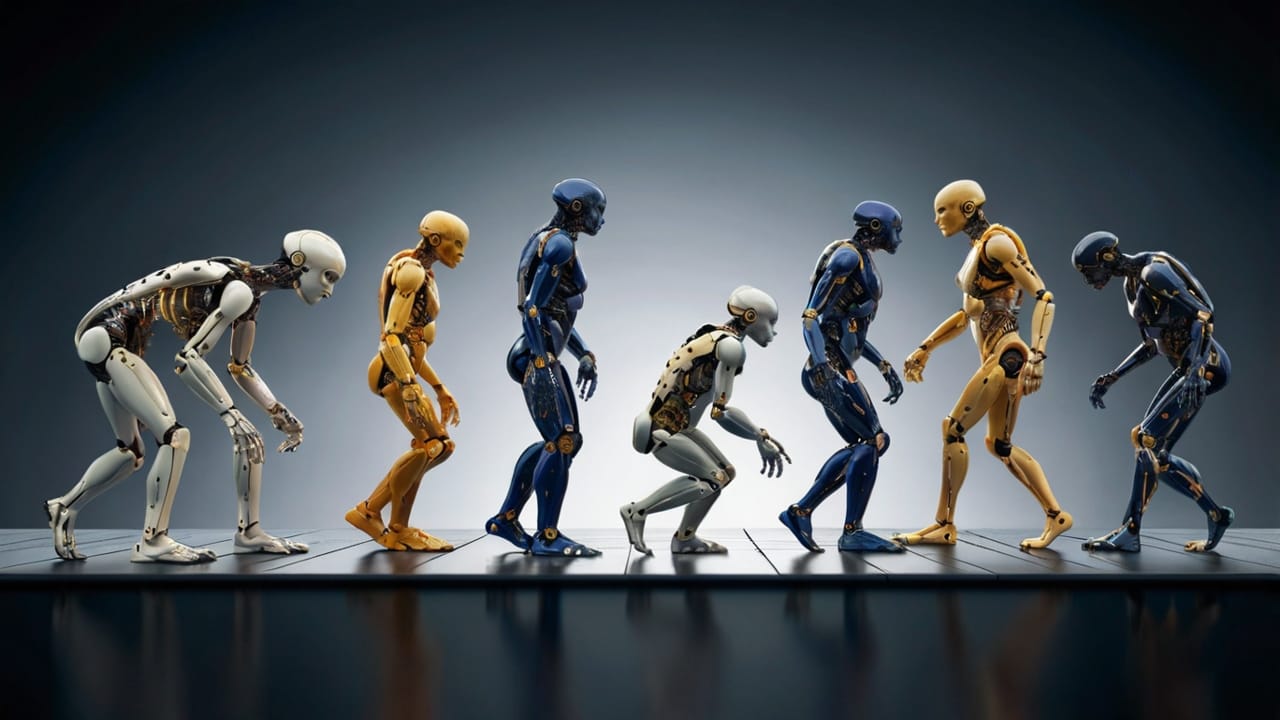The Evolution of AI How Artificial Intelligence Is Shaping the Future
The Evolution of AI: How AI is Changing the World
- The advancement of AI (Artificial Intelligence) has made the once theoretical concept become a rather strong tool that has influence on the large variety of fields. Starting from electronic assistants in our homes to robotic process automation in industries this technology has expanded significantly. Altogether, this article will walk you through what it is AI, the milestones, industries that are reshaped by it, the trends, opportunities, challenges, and what we have in store for is in the near future.
The Origins of AI: The Change from Idea to a Scene
- The history of artificial intelligence started half a century ago in 1956 when computer scientists started wondering if machines could imitate intelligence. An important step in this journey was the Turing Test proposed by Alan Turing in 1950 this being a kind of examination of whether the machine could mimic the human answer.
- In retrospect, the Dartmouth Conference in 1956 is considered as the starting point when AI emerged as a discipline. Many of the early systems were concerned with elementary question-answering and symbolic manipulations despite current constraints in computing capacity.
The synopsis of evolution of Artificial Intelligence
- The Birth of AI (1956): AI experts met in Dartmouth College where they commenced researching artificial intelligence and agreed on the abbreviation AI.
- The Expert Systems Era (1980s): Expert systems based on artificial intelligence technologies were created for industries such as healthcare industry and the finance industry.
- AI vs. Chess Champion (1997): Another great triumph of AI was reported in 1997 when IBM’s Deep Blue defeated world chess champion Garry Kasparov.
- Deep Learning Breakthrough (2012): Neural networks in AI changed with the arrival of AlexNet, enhancing the ability in master image and speech.
The Evolution of AI in Daily Life

AI has become part of our daily routines, enhancing convenience and productivity:
- Virtual Assistants: Tools like Siri, Alexa, and Google Assistant use natural language processing (NLP) to understand voice commands.
- Chatbots and Customer Service: Many companies use AI chatbots for instant support, improving customer service efficiency.
- Personalized Recommendations: AI powers recommendation engines on platforms like Netflix, Spotify, and Amazon to personalize user experiences.
- Self-Driving Cars: Autonomous vehicles are becoming reality, thanks to AI-powered navigation and decision-making systems.
The Evolution of AI Across Industries
- Healthcare: AI is enhancing diagnostics, predicting diseases, and streamlining medical data management through tools like machine learning algorithms.
- Finance: Banks leverage AI for fraud detection, algorithmic trading, and personalized financial services.
- Retail: AI improves supply chain management, inventory forecasting, and customer behavior analysis.
- Manufacturing: AI and robotics enable predictive maintenance, improve efficiency, and reduce production costs.
Emerging Trends in the Evolution of AI
- Generative AI: Models like ChatGPT and DALL-E generate human-like content, transforming industries like content creation and customer support.
- AI in the Metaverse: AI will play a key role in creating and managing virtual worlds in the metaverse, enhancing user interactions.
- AI for Sustainability: AI optimizes energy consumption, enabling smarter cities and promoting sustainable development.
- Ethical AI: As AI adoption grows, so does the focus on AI ethics, ensuring transparency, fairness, and privacy.
Challenges in the Evolution of AI

Despite its promise, AI faces several challenges:
- AI Bias: Algorithms can inherit biases from their training data, leading to unfair outcomes.
- Data Privacy Concerns: With AI relying heavily on large datasets, privacy becomes a concern.
- Job Displacement: Automation powered by AI could disrupt industries, displacing workers in some sectors.
- Lack of Explainability: Many AI systems function as black boxes, making it difficult to interpret how decisions are made.
The Future of AI: What’s Next in Its Evolution?
The evolution of AI is far from over, with new innovations on the horizon:
- Quantum AI: Together, QC and AI are expected to create virtually unstoppable patterns of computation.
- Collaborative AI: AI will help professionals in the healthcare and engineering sectors and more human/ AI collaboration will be realized.
- AI-Enhanced Education: It means technology like artificial intelligence will play a big role in delivering education to all students.
- AI-Driven Healthcare: There will be an instance of using advanced analytics of patient’s data and diagnostics brought about by Artificial intelligence.
The Endless Potential of AI
- New artificial intelligence has impacted everyone’s lives in various ways that is why it is important to know it’s history. In every possible field, we now have artificial intelligence – from home help via virtual assistants and cars that drive themselves to healthcare consultants, and supply chain management. This mean that as technology advancement continues to emerge in the field of AI its usefulness will increase and with it comes the new opportunities but also new problems.
- For people and enterprises to fully experience and reap the potentials of AI integration into the society, people and companies have to accept change while users simultaneously overcome some of the moral and data privacy issues. Obviously, the story of AI as an endeavor is far from complete and the products we observe today represent merely the starting point of a future in which an AI technology is an indispensable part of our lives.
Post Views: 232
